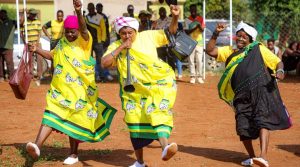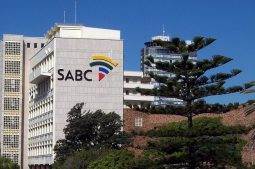The Congress of South African Trade Unions’ (COSATU) first Deputy President Mike Shingange says the rising cost of living is putting severe financial pressure on the working class and the unemployed.
He says it is the responsibility of both government and the private sector to seek relief for South Africans.
Shingange has joined the march that COSATU and the South African Federation of Trade Unions (SAFTU) leaders have organised to the Union Buildings in Pretoria as part of the national shutdown against the high cost of living.
He says, “You’ll know that those who are likely to be employed today, they’re unable to transport themselves to work because the salary that they’re taking home is actually less than they’re using to go to work. They can’t afford food or grocery basket today. The petrol is unaffordable, the electricity which is expensive is also unavoidable. We are trying to say to policymakers and captains of industries, particularly the private sector, must rethink the policies that they’re following.”
VIDEO: Workers hit the streets over the rising cost of living:
Limpopo
SAFTU and COSATU in Limpopo are leading a march in Polokwane on Wednesday against the high unemployment rate and high cost of living among others.
The march started at the SABC Park and move to the office of the Premier.
The COSATU provincial secretary, Gerald Twala, says they’ve resorted to a shutdown after government’s failure to listen to the workers.
Twala says, “The reason of our shutdown is that once workers go to the street it becomes the last resort. We have actually been engaging for a very long time with our government on many socio-economic and work challenges and the government is not listening. We think government is failing to address many of socio-economic challenges faced by our people especially workers in particular.”
North West
In Jouberton near Klerksdorp in the North West, educational and health facilities, as well as taxis, are operating normally despite the national shutdown.
However, COSATU provincial secretary Kopano Konopi says schools will be shut down later in the day, when they start their march to the Employment and Labour Department, to hand over a memorandum.
Schools, clinics and hospitals are operating as normal, and seemingly not bothered by Cosatu’s national shutdown on the economy.
Cosatu says schools will be closed later, but on Wednesday morning, it looks like the shutdown message, seems to have fallen on deaf ears, as many are carrying on with their daily activities.
VIDEO: Strike action and the impact on education:
Additional reporting by Mahlatse Phaladi and Mpho Lepedi.






